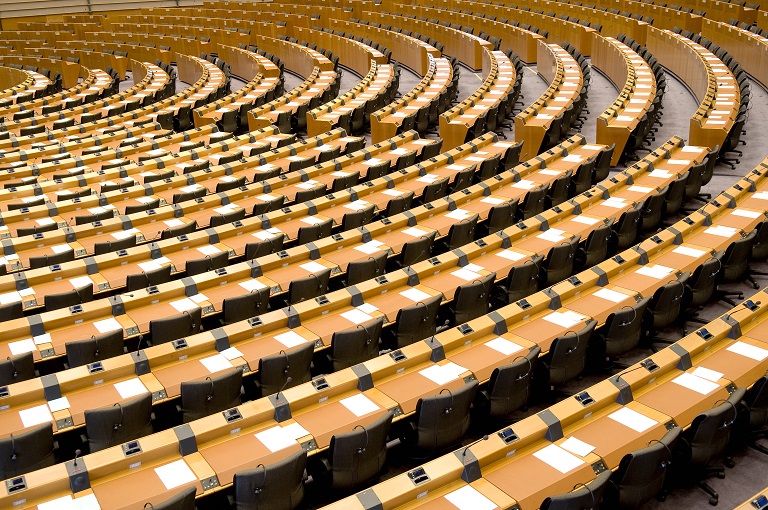UK and EU regulators offer further detail on how competition law can support sustainability
Published on 14th April 2022
What are the implications of CMA and European Commission proposals for businesses in sustainability collaborations with competitors?

Competition authorities in the UK and EU have published details of how sustainability agreements between competitors can be better supported by their regimes. These agreements could include joint research and development (R&D) of green technologies, components and processes, maximising use of resources – for example, by sharing logistics capabilities – and arrangements to comply with minimum standards or net zero goals.
In the UK, the Competition and Markets Authority (CMA) has published (14 March 2022) advice requested by the secretary of state for business, energy and industrial strategy in July 2021 on how competition law could be adapted to help achieve the UK's net-zero and sustainability goals.
The European Commission has published (1 March 2022) its draft revised "horizontal" guidelines, which include a detailed 19-page section on the circumstances in which competitor collaborations with sustainability objectives will comply with competition law. In contrast to the CMA's approach, the Commission's concept of "sustainability" extends beyond cooperation with environmental objectives to wider public policy objectives such as labour and human rights.
Both authorities have had a long-running interest in collaborations between competitors pursuing sustainability and environmental objectives, which have been on the rise as more businesses explore the opportunities these present and environmental protection has become a core priority of competition regulators . The discussions at last year’s UN Climate Change Conference (COP 26) held in Glasgow underlined the scale of the challenge of environmental sustainability and the need for further regulator activity on collaborative activity in this area.
The CMA approach
In its advice, the CMA does not recommend any change to the existing competition rules, but rather it proposes that sustainability goals should be supported within the existing legal framework, such as recognising sustainability benefits (for example, enabling a reduced carbon footprint) when considering whether any anti-competitive effects of a competitor collaboration are outweighed by the benefits of that collaboration.
The core action the CMA proposes to take is to establish an internal Sustainability Taskforce. This will be "a focal point within the CMA for policy issues relating to sustainability". The taskforce will:
- Initially focus on developing formal guidance for businesses. This will provide examples of when sustainability agreements would be permitted under competition law, which will help businesses to understand how to structure their agreements in compliance with competition law.
- Lead proactive engagement with relevant stakeholders to inform subsequent phases of work. This is a prime opportunity for businesses that engage in sustainability agreements to feed into the CMA's developing thinking in this area.
- Launch at least one market study in one "net zero" relevant market (to be defined by the CMA), which will showcase practical application of the regulator's approach to sustainability collaborations between competitors and will provide useful additional guidance for businesses in sectors beyond the specific market that it chooses to investigate.
The EU approach
On 1 March 2021, the EC published draft revised Horizontal Block Exemption Regulations Guidance on when interactions and collaborations between competitors will comply with competition law.
Crucially for businesses pursuing sustainability objectives, the draft guidance includes a new chapter discussing when sustainability agreements between competitors would be permitted under EU competition law. In other cases, the draft guidance provides that a collaboration that involves coordination of competitive parameters may nonetheless comply with competition law if, broadly, the sustainability benefits that the collaboration will achieve outweigh those anti-competitive effects and the collaboration is proportionate and necessary to achieve those benefits. These sustainability benefits might be for the individual consumer (for example, lower energy bills as a result of a jointly developed energy-efficient electrical appliance) or for wider society (for example, agreeing to adopt production processes that generate less pollution).
It is also possible that sustainability agreements will correspond to one of the types of cooperation agreement addressed in the draft guidance. This contains chapters addressing how R&D agreements, production agreements and purchasing agreements between businesses can be compliant with competition law. Additionally, R&D agreements and specialisation agreements are covered by their own exemptions, providing further information on how to structure these types of agreement so they do not infringe competition law.
The draft guidance specifically discusses sustainability standardisation agreements, that is, where competitors agree to adopt and comply with minimum standards, such as low-carbon or recallable packaging requirements or to commit only to use certain environmentally friendly components or production processes. In this context, the draft guidance provides a "soft safe harbour". Businesses that are participating in sustainability standardisation agreements can be confident of doing so in compliance with competition rules, provided that the following cumulative conditions are met:
- the procedure for developing the sustainability standard is transparent and open to all;
- the sustainability standard doesn't require all businesses to comply with it;
- businesses participating in the sustainability standard are free to adopt a higher standard at their discretion;
- commercially sensitive information not necessary for the standard is not shared between the parties;
- access to the standard is granted to all, including those who have not participated in the standard development process;
- the standard does not lead to a significant increase in price or a reduction in product choice; and
- businesses that adhere to the standard are continually monitored to ensure compliance with it.
Osborne Clarke comment
The EU's draft guidance should provide much-needed legal clarity to businesses competing in the EU. The Commission has invited comments on the draft guidance by 26 April 2022, representing a prime opportunity for businesses involved in sustainability agreements to influence future policy. It is aiming for the rules to enter into force on 1 January 2023.
The CMA's Sustainability Task Force will hopefully provide a similar level of legal certainty to businesses competing in the UK when it publishes its guidance.
For businesses that are grappling with the interaction between sustainability initiatives and the competition rules (for instance, businesses involved in environmental collaborations with competitors), it is hoped that the proposed EU and UK guidance will help to ensure that such initiatives are not hampered by an overly restrictive competition law regime, or uncertainty as to the regulators' approach.
The potential size of penalties for competition infringements, the reputational damage and the risk of third-party actions for damages mean that many businesses are understandably cautious about competition law compliance risk. Sustainability and decarbonisation efforts, on the other hand, can be most impactful where there is a collective effort and a coordinated change of approach. Clarity about the enforcement authorities' interpretation of how competition law principles apply to these types of collaboration between competitors is therefore very welcome.
If you would like to discuss responding to the EC's consultation, engaging with the CMA as they develop their position, or any other aspect of this article, please do not hesitate to contact the authors or your usual Osborne Clarke contact.





